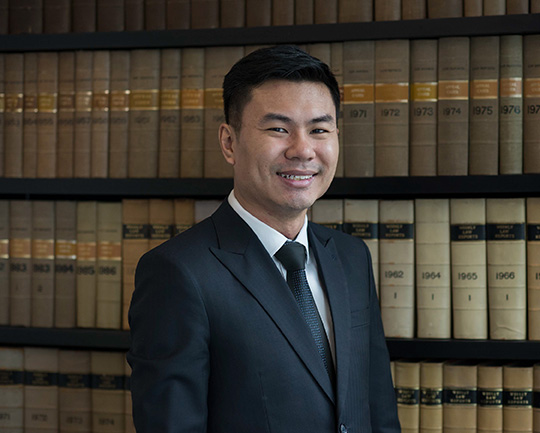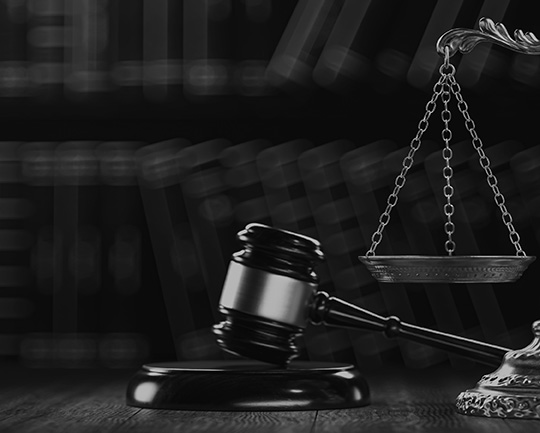Mr. Low Chun Yee

Mr. Low Chun Yee brings a wealth of legal experience and a strong professional background to Low Law Corporation. He served as a Deputy Public Prosecutor/State Counsel at the Attorney General’s Chambers (AGC) for several years, where he gained invaluable insights into legal proceedings and prosecution strategies.
A graduate of the National University of Singapore (NUS), Mr. Low has successfully applied his legal expertise at mid-sized private firms, handling a wide range of complex litigation cases. Throughout his distinguished career, he has represented clients in numerous High Court and State Courts trials. His legal acumen spans across multiple areas of law, ensuring that his clients receive well-rounded and informed legal representation.
With his knowledge and exceptional advocacy skills in criminal law, Mr. Low has won numerous Magistrate’s Appeals at the appellate level, earning a reputation as a formidable advocate in the courtroom. He remains committed to utilising his expertise in criminal law to benefit his clients.
Aside from criminal law, Mr. Low also has experience in civil litigation, Protection from Harassment Act matters, family law and wills. Mr. Low also provides corporate services such as the drafting and reviewing of contracts and agreements.
Mr. Low is a firm believer that justice should be accessible to all accused persons, regardless of their background. To date, he has helped over 120 accused persons on CLAS (Criminal Legal Aid Scheme) and LASCO (Legal Assistance Scheme for Capital Offences).

Featured On
As testament to Mr. Low’s legal expertise and industry recognition, numerous news articles have prominently featured his cases. These articles showcase Mr. Low’s commitment to delivering exceptional legal services and unwavering dedication to advocating our clients’ interests.
FAQs
Arrest
Can anyone detain you lawfully?
In Singapore, the police and certain authorised persons can arrest you.
Which offences could result in an arrest?
You can be arrested for a wide range of offences, including criminal acts such as theft, assault, drug offences and more.
How long can the police detain you?
The police can detain you for up to 48 hours without a warrant if they suspect you have committed a serious offence.
When should you contact a lawyer?
After your arrest, you can get a criminal defence lawyer in Singapore as soon as possible, and the police must inform you of this right.
Bail
To become a bailor, what are the requirements?
If you need to act as a bailor for someone arrested, there are a few things to remember. You must have the financial means to provide the bail amount or secure a bail bond and a close relationship with the accused is often required.
The court will assess your trustworthiness and background before allowing you to act as a bailor. If you meet all the requirements, you can help your loved one get out of jail and prepare for their trial.
As a form of security for bail, what will you utilize?
When it comes to securing bail, there are a few different options available. The first is cash bail, which involves depositing the full bail amount in cash with the court.
Another option is a property bond, where you can use real estate or other valuable property as collateral to secure the bail. The property’s value should be enough to cover the bail amount.
A surety bond is another possibility, where you can hire a licensed bail bondsman to post a bond on your behalf. The bondsman guarantees the accused’s appearance in court and you will typically pay a percentage of the bail amount as a fee.
Finally, some banks may issue a banker’s guarantee as security for bail, ensuring that the bail amount is available if the accused fails to appear in court.
Court Process
At what point are you required to appear in Court?
When you are charged with a criminal offence, you must attend court on the dates specified.
What will happen during your initial Court appearance?
At your first court hearing, the court will read the charges against you and ensure you understand them. You may be asked if you have legal representation; in some cases, the court may appoint a lawyer.
You may need to enter a plea or file a response to the plaintiff’s claims. The court will set future dates for court proceedings and may address bail conditions or legal procedures.
Court Process
At what point are you required to appear in Court?
When you are charged with a criminal offence, you must attend court on the dates specified.
What will happen during your initial Court appearance?
At your first court hearing, the court will read the charges against you and ensure you understand them. You may be asked if you have legal representation; in some cases, the court may appoint a lawyer.
You may need to enter a plea or file a response to the plaintiff’s claims. The court will set future dates for court proceedings and may address bail conditions or legal procedures.
Sentencing
The Court determines the sentence based on what factors?
Singapore’s courts use a structured approach to determine criminal sentences. Factors include the severity of the offence, statutory provisions, aggravating and mitigating factors, the offender’s record and circumstances, and sentencing objectives. Judges use discretion to determine appropriate sentences.
What principles guide the Court in determining the sentence?
Singaporean courts consider deterrence, rehabilitation, prevention, retribution, restitution, compensation, aggravating and mitigating factors, consistency, proportionality and special consideration for young offenders in sentencing.